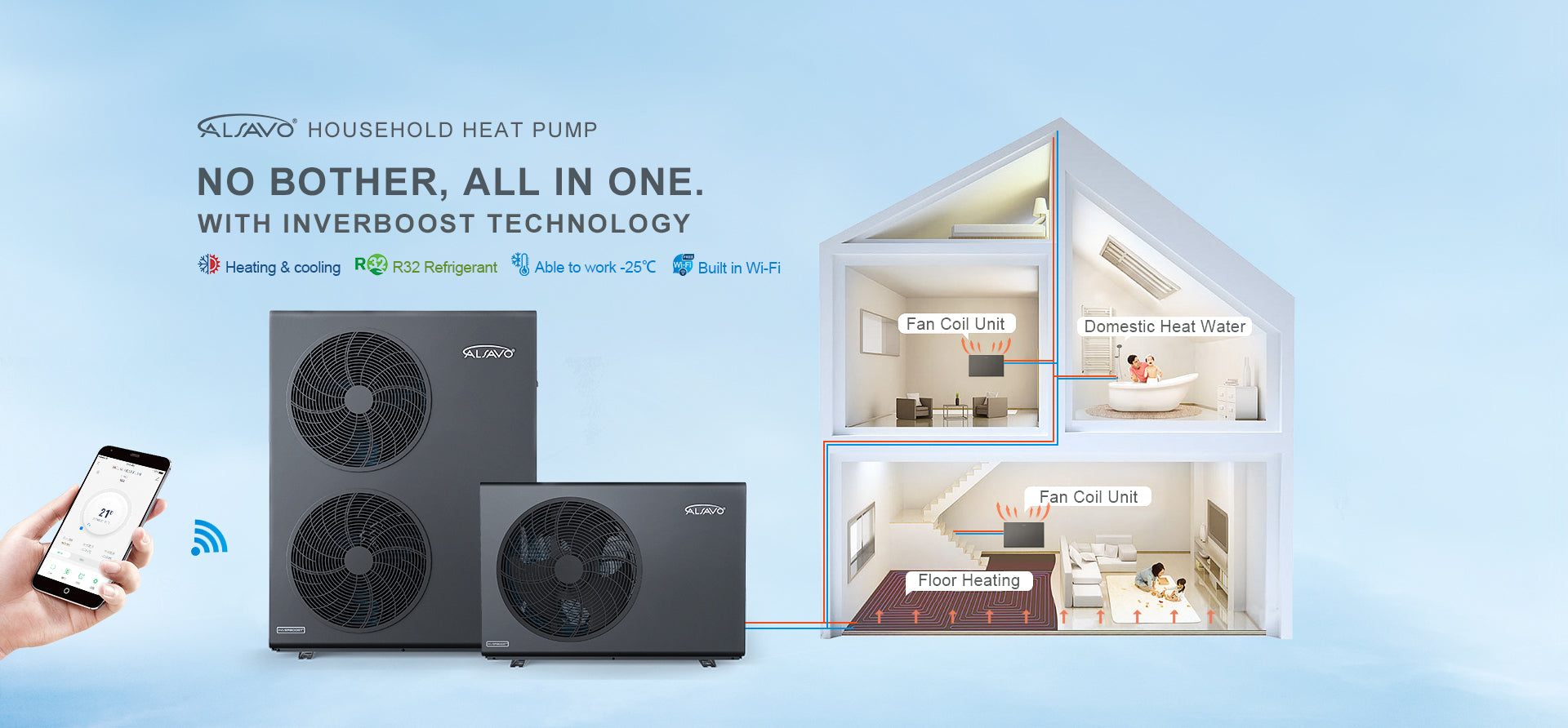The Environmental Benefits of Air Source Heat Pumps for Home Heating and Cooling
As the world continues to grapple with the effects of climate change, many individuals and businesses are looking for ways to reduce their carbon footprint and become more environmentally friendly. This is especially true in home heating and cooling, where traditional fossil fuel-based systems can be expensive and harmful to the environment. One alternative that is gaining popularity is the air source heat pump, a technology that offers a range of environmental benefits over traditional heating and cooling systems.
What is an Air Source Heat Pump?
air source heat pump is a type of heating and cooling system that uses the outside air as a source of heat or cold. The system consists of an outdoor unit that contains a compressor and heat exchanger, and an indoor unit that contains a fan and heat exchanger. During the winter months, the system extracts heat from the outside air and uses it to warm the inside of the building, while during the summer months, it extracts heat from the inside and transfers it outside, effectively providing both heating and cooling.
Environmental Benefits
1. Energy Efficiency
One of the primary benefits of air-source heat pumps is their energy efficiency. Unlike traditional heating and cooling systems that burn fossil fuels to generate heat, air-source heat pumps use electricity to transfer heat from the outside air to the inside of a building. This means that they can achieve high levels of efficiency, with some models capable of providing up to four units of heat for every unit of electricity used.
This increased efficiency means that air source heat pumps require less energy to operate, reducing the amount of greenhouse gas emissions produced as a result. According to the Department of Energy and Climate Change, air-source heat pumps can reduce carbon dioxide emissions by up to 50% compared to traditional heating systems, making them a much more environmentally friendly option.
2. Renewable Energy Sources
Another critical benefit of air-source heat pumps is that they are powered by electricity, which can be generated from renewable sources such as wind, solar, or hydroelectric power. This means that air-source heat pumps have the potential to be a completely renewable source of heating and cooling, which is crucial as we move towards a more sustainable future.
By using renewable energy to power heating and cooling, we can significantly reduce our dependence on fossil fuels, which are finite resources and contribute significantly to climate change. This makes air-source heat pumps a particularly attractive option for those looking to reduce their carbon footprint and become more environmentally friendly.
3. Reduced Carbon Footprint
As mentioned above, air-source heat pumps have the potential to reduce carbon dioxide emissions compared to traditional heating systems significantly. In addition to their increased efficiency and use of renewable energy, air-source heat pumps also have a smaller physical footprint than conventional heating systems, which reduces the amount of land needed for their installation and operation.
This reduced footprint is particularly important in urban areas where space is at a premium, as air-source heat pumps can be installed on rooftops or other areas that are not suitable for traditional heating systems. This reduces the need for additional land use, which can help to preserve natural habitats and reduce the impact of human activities on the environment.
5. Improved Air Quality
Traditional heating and cooling systems that use fossil fuels can contribute to poor air quality, which can negatively impact human health. By contrast, air-source heat pumps do not produce any direct emissions and therefore have a much smaller impact on air quality.
This can be particularly beneficial for those with respiratory or other health conditions, who may be more sensitive to pollutants in the air. Additionally, by reducing the number of fossil fuels burned for heating and cooling, air source heat pumps can help to improve overall air quality in the long term, which is beneficial for both human health and the environment.
6. Long-Term Cost Savings
Finally, air-source heat pumps can offer significant long-term cost
savings compared to traditional heating and cooling systems. While they may have a higher upfront cost, air-source heat pumps can be more efficient and require less maintenance over time, which can result in lower energy bills and fewer repairs.
Additionally, as the cost of renewable energy continues to decrease, the cost of operating an air source heat pump will likely fall as well, making them an even more attractive option for those looking to save money while also reducing their environmental impact.
Conclusion
Overall, air-source heat pumps offer a range of environmental benefits over traditional heating and cooling systems. They are more energy-efficient, powered by renewable energy, have a smaller carbon footprint, and can improve air quality, all while offering long-term cost savings. As we continue to look for ways to reduce our impact on the environment and combat climate change, air-source heat pumps are an increasingly attractive option for individuals and businesses alike.
Alsavo as an air source heat pump supplier, Will always provide you with professional heat pump knowledge and excellent heat pump products
 heat pump companies
heat pump companies heat pump producers
heat pump producers
评论
发表评论